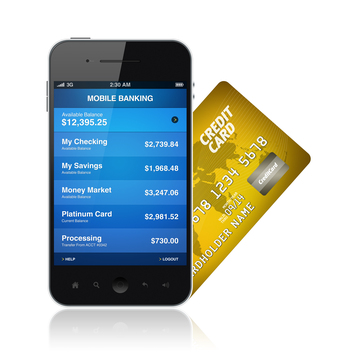 NEWS
NEWS
 NEWS
NEWS
 NEWS
NEWS
![]() Smartphones are becoming an all-in-one gadget that initially started off making calls and sending texts, and now have evolved into our livelihoods. Phones are now tackling another frontier and becoming our wallets, says the LA Times. The smartphone is replacing the credit card and cash as a preferred method of payment, and by 2016 there will be a projected $617 billion in cell phone transactions worldwide.
Smartphones are becoming an all-in-one gadget that initially started off making calls and sending texts, and now have evolved into our livelihoods. Phones are now tackling another frontier and becoming our wallets, says the LA Times. The smartphone is replacing the credit card and cash as a preferred method of payment, and by 2016 there will be a projected $617 billion in cell phone transactions worldwide.
The Good and The Bad
While it’s undeniable that there are advantages to paying will a smartphone including efficiency and convenience, and that the method of payment is almost certainly growing in popularity, it is not going to replace other methods of payment. A smartphone can be better than a wallet in the fact that you can password protect it and you won’t have to worry about your credit card or money falling out of it, but beyond that the advantages are somewhat in question. Even in terms of safety, you could argue that a wallet would be safer as long as you invest in a form of identity theft protection, like Lifelock. A cell phone can be hacked so imagine if having your cell phone being compromised meant losing control of your credit as well.
Losing It
If you drop your wallet, you can pick it up and still pay for your coffee. You may not be so lucky with a cell phone. Wouldn’t it be aggravating to finally find that perfect pair of shoes you’ve been shopping for and then have to put them back on the rack because your cell phone battery died? A wallet may be able to successfully survive a washing machine with most or your cards intact, while a cell phone may not survive a good rainstorm in an open shirt pocket. Additionally, US News reports that Americans lose their cell phones once a year; imagine losing your wallet at that rate.
Kickin’ It Old School
There is a benefit to the slowness of good old fashioned cash and credit card transactions. If people breeze through shopping lines with instant cell phone transaction, you won’t have that extra minute to decide if you really need an autographed Lady Gaga weather radio. You also miss out on your last chance to buy batteries for said radio when you see them on display at the checkout counter.
In some instances, when using a credit or debit card, consumers may be asked to show proof of identification. Even though you can use your phone to pay, you will still have to open up your purse or pocketbook and show your license, in that case defeating the purpose of using mobile payment, reports Market Watch.
There are benefits to using a cell phone for some financial transactions, but the potential negatives end up being a little more serious. Your personal information is sensitive and, at the same time, vulnerable. Add on the digital access others have to that information and you have a recipe for long lasting financial disaster. The smartphone will likely become a bigger part of our shopping options in the near future, but it is imperative to know the financial and personal risks it poses.
By Lauri Bejar — Lauri originally wanted to go into stock trading, but fell in love with journalism. She happily married the two by becoming a finance journalist.
THANK YOU